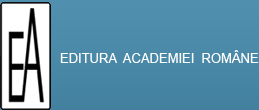An overview of separable fractional programming problem
Abstract
Not available.Downloads
References
Almogy, Y.; Levin, O., A class of fractional programming problems. Operations Res. 19 1971 57-67, MR0274021, https://doi.org/10.1287/opre.19.1.57
Anand, P.; Swarup, K., The procedure for local separable programming. Z. Angew. Math. Mech. 50 1970 320-321,MR0264987, https://doi.org/10.1002/zamm.19700500511
Arora, Savita, Aggarwal, S.P., Dynamica Programming Approach to Linear Fractional Functional Programming, Rev. Belge Statist. d'Informat. et Rech. Operat.,17 (3), 10-23 (1977).
Charnes, A.; Lemke, C. E. Minimization of nonlinear separable convex functionals. Naval Res. Logist. Quart. 1 (1954), 301-312 (1955), MR0074104, https://doi.org/10.1002/nav.3800010408
Černov, Ju. P.; Lange, È. G., A transport problem of fractional programming. (Russian) Optimal. Planirovanie No. 16 (1970), 112-132, MR0309554.
Černov, Ju. P., On fractional Programming with Linear Separable and Quadratic Functions (in Russian), Econom. i Mat. Methody 7, 721-732 (1971).
Černov, Ju. P., An application of the δ-method to the solution of fractional programming problems with separable functions. (Russian) Mathematical methods for the solution of economic problems (Suppl. to Èkonom. i Mat. Metody), No. 3 (Russian), pp. 68-73. Izdat. "Nauka", Moscow, 1972, MR0395840.
Gogia, N. K., The non-linear fractional functional programming problem with separable functions. J. Math. Sci. 4 1969 77-84, MR0269306.
Hadley, G., Nonlinear and dynamic programming. Addison-Wesley Publishing Co., Inc., Reading, Mass.-London 1964 xi+484 pp., MR0173543.
Jagannathan, R., The Programming approach in Multiple Character Studies, Econometrica, 33 (1), 236-237 (1965a), https://doi.org/10.2307/1911898
Jagannathan, R., A Method for Solving a Nonlinear Programming Problem in Sample Surveys, Econometrica, 33 (4), 841-846 (1965b), https://doi.org/10.2307/1910360
Kaul, R. N., Datta, Neelam On the solution of separable programming problem with a fractional objective function. Cahiers Centre Études Rech. Opér. 23 (1981), no. 2, 159-169, MR0625022.
Kortanek, K. O., Evans, J. P.. Pseudo-concave programming and Lagrange regularity. Operations Res. 15 1967 882-891, MR0224374, https://doi.org/10.1287/opre.15.5.882
Miller, Clair E., The simplex method for local separable programming. 1963 Recent advances in mathematical programming pp. 89-100 McGraw-Hill, New York, MR0171624.
Stancu-Minasian, I. M., Applications of the fractional programming. Econom. Comput. Econom. Cybernet. Stud. Res. 14 (1980), no. 1, 69-86, MR0574672.
Stancu-Minasian, I. M., A survey of methods used for solving the problems of fractional programming. The linear case. II. Bull. Math. Soc. Sci. Math. R. S. Roumanie (N.S.) 25(73) (1981), no. 4, 415-430,MR0654036.
Stancu-Minasian, I.M., A Survey of Methods Used for Solving the Linear Fractional Programming Problems with several Objective Functions, Eifth symposium on Operations Research (Univ.Köln, 1980) Operations Research Verfahren, Vol. 40, 159-162, Verlag anton Hain, Königstein (1981b).
Stancu-Minasian, I. M. Fractional programming in complex space: the state of the art. Rev. Roumaine Math. Pures Appl. 26 (1981), no. 3, 481-91, MR0627298.
Stancu-Minasian, I. M., Bibliography of fractional programming, 1960-1976. Pure Appl. Math. Sci. 13 (1981), no. 1-2, 35-69, MR0610004 .
Ţigan Şt., Un algoritm pentru o problemă de programare dinamică fracţionară, Al doilea simpozion de informatică şi conducere, Cluj-Napoca, 1976, Ed. Dacia, 12-14 (1977), in Romanian
Ţigan, Şt., Asupra unor metode de rezolvare a unor probleme particulare de programare fracţionară, Informatica pentru Conducere. Orizont '81. Realizări şi aplicaţii, Cluj-Napoca, 92-93 (1981).
Wadhwa, Vijay, Programming with separable fractional functionals. J. Math. Sci. 4 1969, 51-60, MR0264990.
Downloads
Published
Issue
Section
License
Copyright (c) 2015 Journal of Numerical Analysis and Approximation Theory

This work is licensed under a Creative Commons Attribution 4.0 International License.
Open Access. This article is distributed under the terms of the Creative Commons Attribution 4.0 International License, which permits unrestricted use, distribution, and reproduction in any medium, provided you give appropriate credit to the original author(s) and the source, provide a link to the Creative Commons license, and indicate if changes were made.










